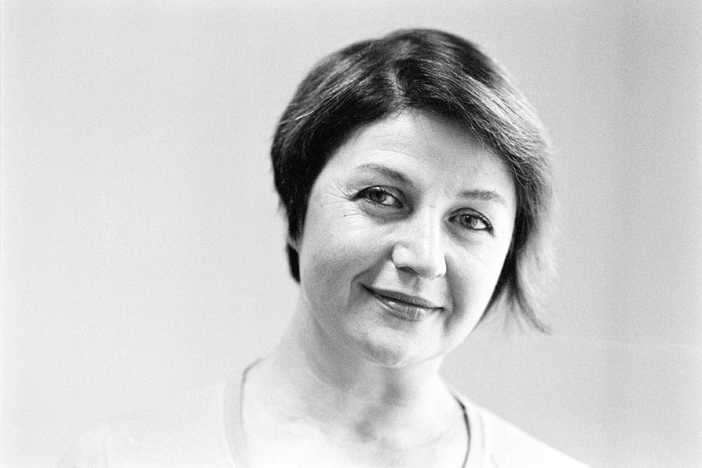
Tatjana, psychologist at Promir centre
»People, who have a very strong belief in God, will hardly come to our psychological centre.<< >>
However, there were some cases where serious believers visited us and told us that normally the church should be responsible for them, but they asked for some personal advice anyway. It was their own decision to come to us.
We also had an interesting experience with a large group of Emmanuel in Slowjansk. We taught and prepared them to work with war-traumatized children in summer camps.
We showed them a lot of practical and specialized tools with which to work best with these children. We enjoyed this cooperation and received a positive feedback.
In my opinion, the key source for helping a child are always the parents or a close relative. If it has a stable relationship to these people, it's much easier for the child to go through rehabilitation. If an adult visits us and tells us that his child has a certain problem and asks us for help and we note that this adult needs help, too, we offer this help to him. Then one psychologist looks after the adult or the parents and another psychologist cares for the child.
When we are working with a child, who has lost a very close family member but still has a close relative, we remind the child that not only he has lost a loved person but the close relative went through the same. For an adult in this situation it is very difficult to deal with his loss on one hand and take care of the child at the same time.
In such cases we are trying to work with the whole family. We see the adults as independent persons, who can react in their own way. We give them the opportunitiy to mourn and explain to them the different stages of mourning. We teach them that no one else can go through these mourning stages for them. This is terrible and painful, but we want to teach people to leave the pain behind.
As a typical shock reaction the adults - similar to children - try to dissociate themselves from what has happened. It's a kind of psychological defense. On the one hand, it is a positive reaction, on the other hand it will not help to cope with the loss in the long run. Many people refus to deal with such incidents, although they remain in their minds encapsulated. Then, the incident is very deep in people's psyche and it takes a lot of energy to come to terms with it. At the same time these people use a lot of force in order to suppress the incident to not let it come up again.
And because these people need so much energy to suppress the incident, the energy is missing in their daily lives and they feel stressed, groggy and depressed. Such people don't understand why they are not able to be happy. Therefore it's so important to explain to people the proceeding of processes.
People, who have lost a child or another close relative are very grateful for the explanations, because they are confronted with so many prejudices and prepossessions in society which come from ideas about how to behave when you lose someone. That is really not very helpful. We experience this e.g. when people go to the priest and he tells them they should not cry because this is bad for the one who passed away. We simply tell the people that if you are in pain and you want to cry, just cry. If someone feels bad, it is all right and you should tolerate it.«